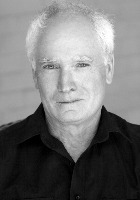The Apocrypha Of William O'shaunessy: Book Ii, Xii Poem by Peter Boyle
The Apocrypha Of William O'shaunessy: Book Ii, Xii
Among the ancients of our people, the Hellenic homeland and its numerous colonies and sister cities, the poet was a figure uniquely admired and deeply feared. It is well known that poems can always be altered by a poet and that therefore the only way to ensure the canonical survival of a given poem is by killing the poet. For this reason poets were reluctant to write poems, let alone complete a poem.
When a poet did know that he had finished a poem of great value he immediately had to leave his home and city, first binding his fellow citizens on solemn oath to change nothing of his poem while he was away. It only remained for him to die in exile – in this way his people would be eternally obliged to preserve his work faithfully.
In Ebtesum an opposite tradition prevailed – that poems should not be preserved but that poets should endlessly invent new poems. Though poets were deeply honoured in the same way as musicians and singers, their specific names were rarely mentioned and, in the books later surreptitiously produced – such as the Black Book of Ebtesum or the Green Book of Ebtesum, ascriptions are not made to individuals. During my own stay in Ebtesum after an evening of extraordinarily moving poetry I made the mistake of thanking and congratulating a poet on his work. As if disturbed while searching bewilderdly among lost shades, his aged face looked far away into great distances. He spoke then in a language I had never heard before yet was able to understand immediately by instinct: “For these words to flow through me,” he said, “it is necessary never to think thoughts like that. Only by eliminating all desire to own, even as much as the name on my grave, can speech bless me and the silent ones allow me into their home.”
(from Theophrastus, Compendium of poetic practices, most likely produced under Theophrastus’ supervision as director of the Lyceum after Aristotle's death and possibly written by Aristotle’s pupil Mendron who had lived many years in Egypt and travelled extensively in diverse realms.)
This poem has not been translated into any other language yet.
I would like to translate this poem